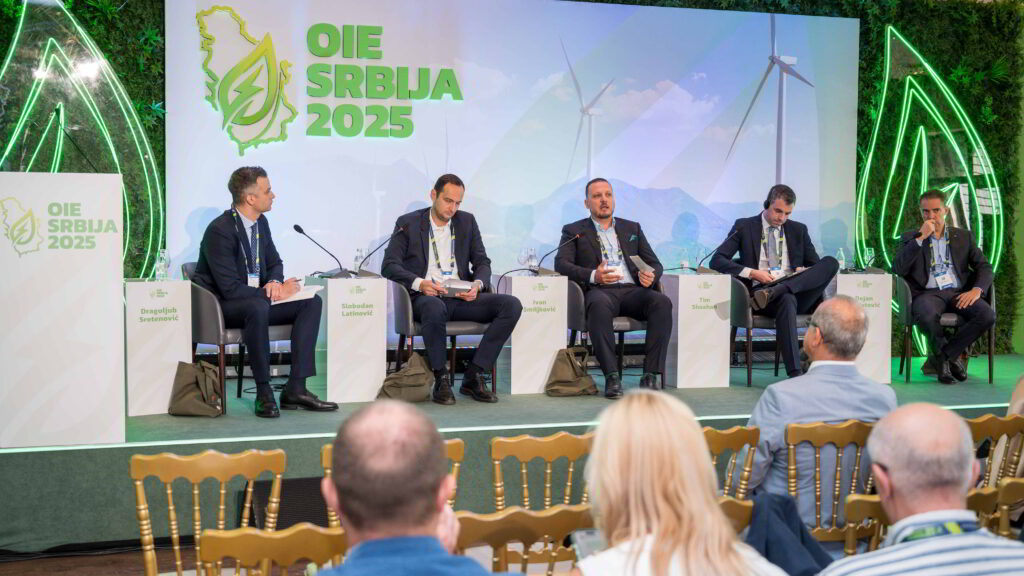Banks are interested in financing renewable energy projects, and when assessing which ones to support, the investor’s experience and references are key. However, countries in the region must also demonstrate political will regarding renewables, as uncertainty remains the biggest challenge for investors, this was one of the key messages from the first panel on day two of the RES SERBIA 2025 conference in Vrdnik.
The panel titled “Financing Renewable Energy Projects – Is There Enough Money for the Green Energy Transition and Under What Conditions?”, which brought together banking professionals, addressed whether banks should take on greater risk in financing, the role of battery storage as a prerequisite for new renewable energy projects, and the importance of establishing clear rules and regulations.
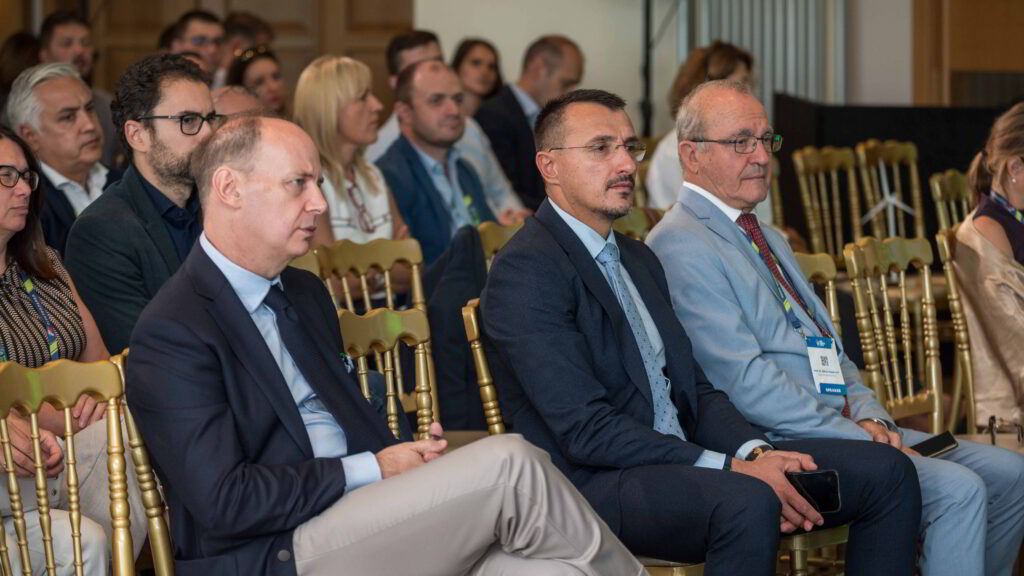
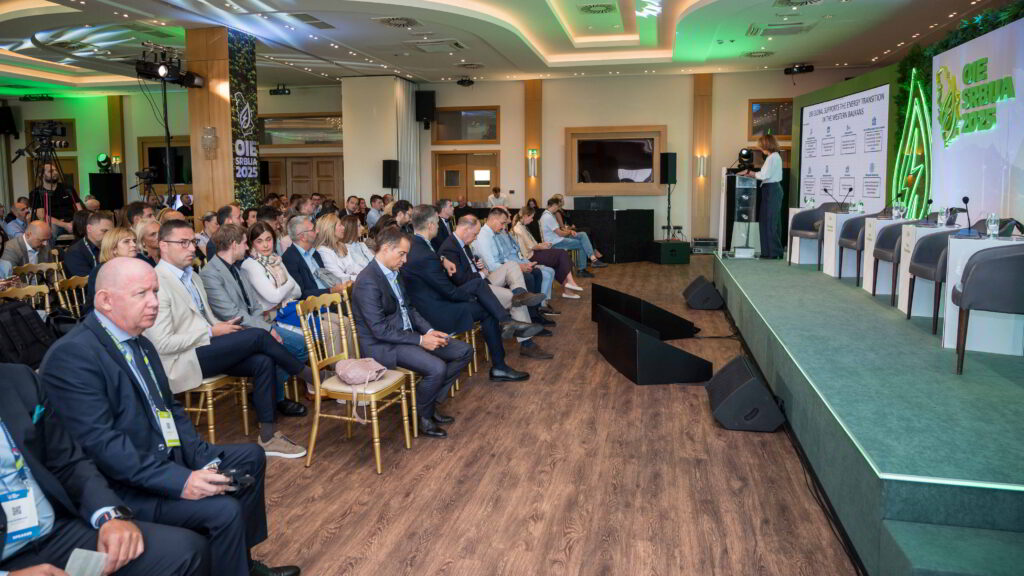
The introductory remarks were delivered by Lijana Jančauskienė, Senior Sector Engineer and Project Coordinator at the European Investment Bank. Panelists included Slobodan Latinović, Director of Project Finance at Erste Group Bank AG, Ivan Smiljković, Executive Board Member at ProCredit Bank Serbia, Tim Sheahan, Senior Director at Alcazar Energy, and Dejan Janjatović, Deputy President of the Executive Board at NLB Komercijalna Banka. The discussion was moderated by Dragoljub Sretenović, Senior Partner at BDK Advokati.
EU on Track to Install 89 GW of Renewable Energy Projects by 2025
Lijana Jančauskienė, Senior Sector Engineer and PJ Coordinator at European Investment Bank, emphasized that the EU is on course to install 89 GW of renewable energy projects by 2025.
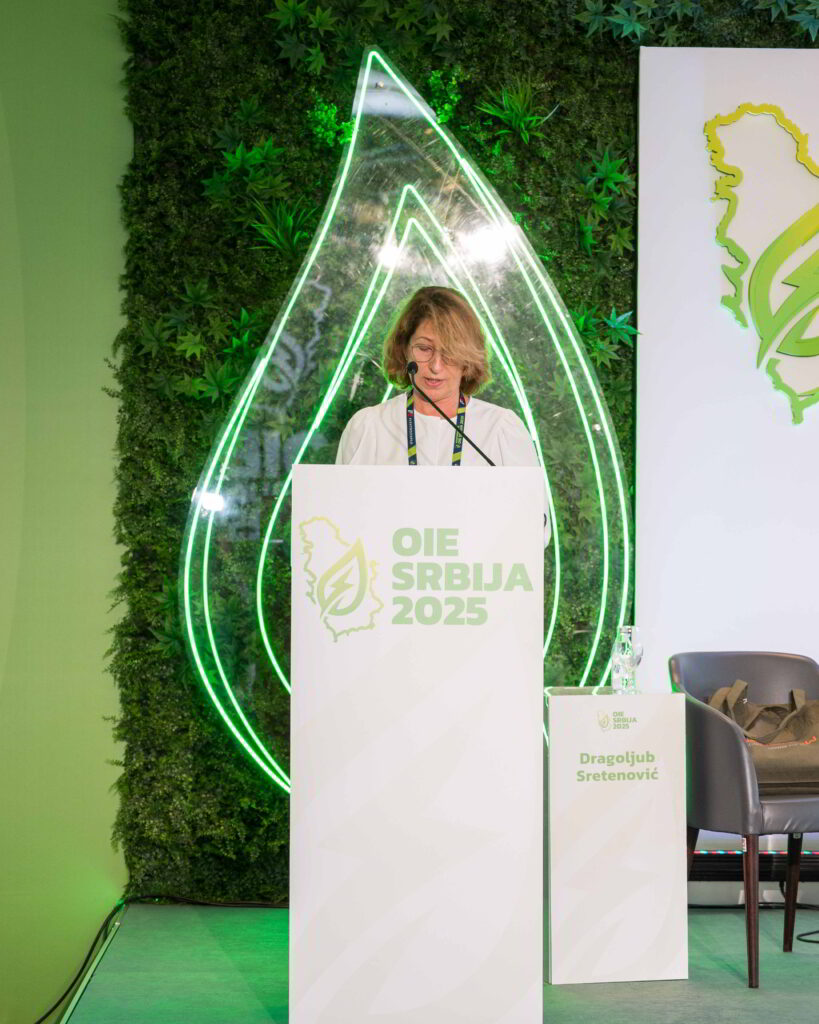
“In Serbia, we are working to improve energy efficiency and integrate renewables into the grid. The European Union has provided €7.5 million in non-refundable funds for the rehabilitation of the Bistrica hydropower plant, with the total project value reaching €50 million,” she noted, adding that the EIB, in partnership with commercial banks, also supports small enterprises.
Uncertainty Is the Biggest Challenge for Investors
Tim Sheahan, Senior Director at Alcazar Energy, an independent infrastructure fund manager, stated that liquidity is not lacking for renewables in the Western Balkans. He pointed out that Serbia’s two most recent major projects, the Čibuk 2 and Krivača wind farms, were fully financed by commercial banks.
“We have 1.5 GW in development across the Western Balkans, including two wind farms in Montenegro and North Macedonia. Serbia also has many projects in early development stages. Alcazar is committed to the region long-term, and there is strong ambition across the Western Balkans when it comes to renewables,” he said.
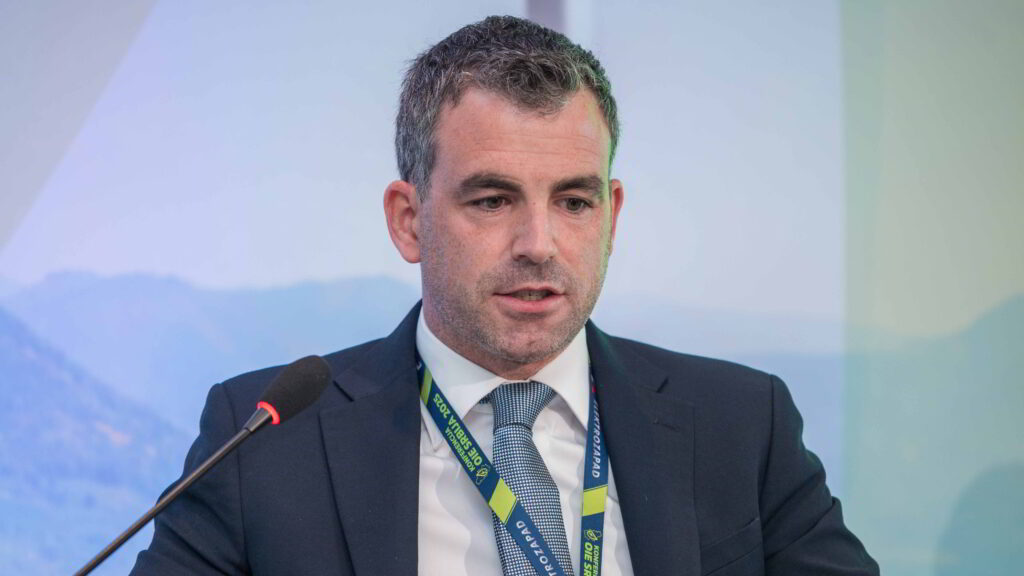
Tim Sheahan, Senior Director at Alcazar Energy
Still, Sheahan acknowledged the challenges, particularly the uncertainty investors face.
“There are many issues around permitting, too many stakeholders involved in a single process, unclear responsibilities, no deadlines for approvals, all of which delay projects. It’s crucial to create an investor-friendly environment. We see political support, especially in countries with more advanced development, but regional governments must show political will for renewables, as this is a long-term game in terms of energy security,” he emphasized.
He also highlighted uncertainty surrounding CBAM, the Carbon Border Adjustment Mechanism.
“Investors are cautious about how this will affect them. From a banking perspective, there will be increasing focus on various types of Power Purchase Agreements (PPAs), and banks will need to take on slightly more long-term risk,” Sheahan added.
Without Storage Capacity, the Industry Cannot Move Forward
Dejan Janjatović, Deputy President of the Executive Board at NLB Komercijalna Banka, described the past year as dynamic for renewables. He noted that industry is evolving and that storage is becoming a central issue.
“For a long time, the question was why projects weren’t being combined. Now, for the first time, we’re seeing investors combine solar and wind on the same site. The industry has reached a point where, without storage capacity, it cannot progress. Every project we’re currently analyzing includes storage, that’s the direction the industry is heading, and it reduces risk, which is crucial for banks,” Janjatović explained.
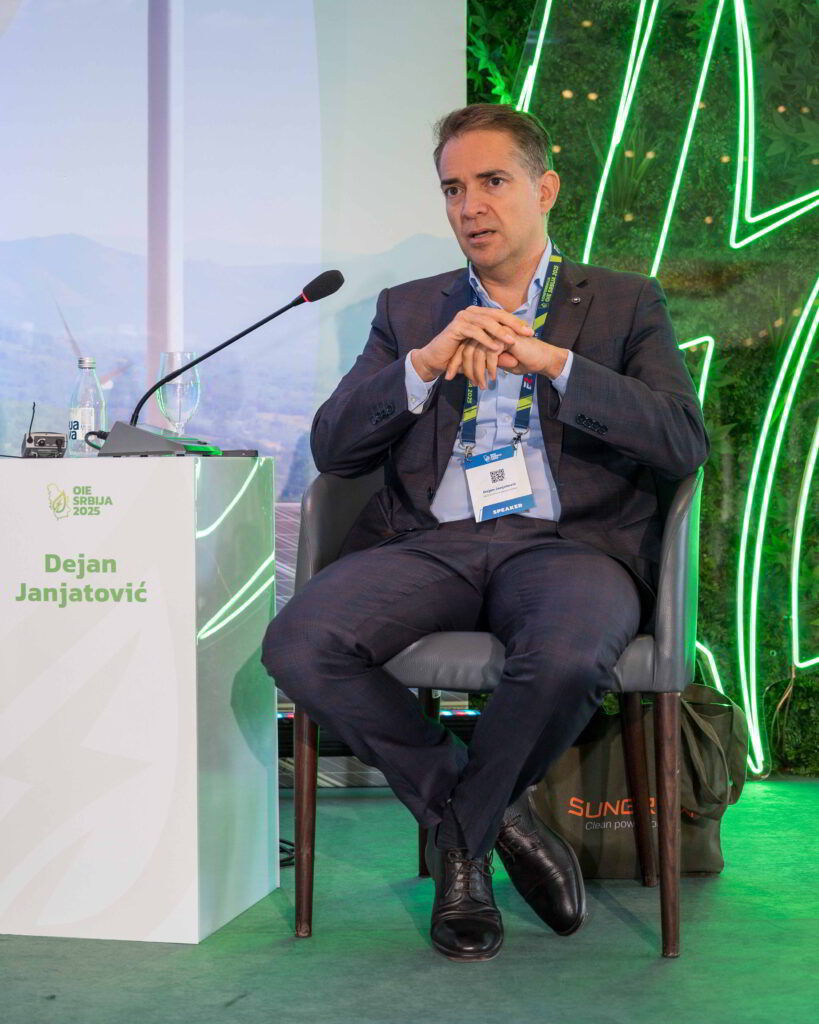
Dejan Janjatović, Deputy President of the Executive Board at NLB Komercijalna Banka
He stressed that when banks assess projects, the investor’s experience and references are essential.
“Technology assessment and expected cash flow, which depends on contracts, whether through auctions that offer predictability for banks, are very important. We’ve also financed projects outside of such contracts, but the challenge is how to evaluate them, given the volatility of the renewables market,” he said.
Janjatović expects new energy sources to emerge, including initial green hydrogen projects.
“The market has already shifted, and I anticipate a strong continued trend in the sector, as energy demand will grow. New technologies require high-powered data centers. It’s vital to strengthen the grid to handle the volume of energy from renewables,” he concluded.
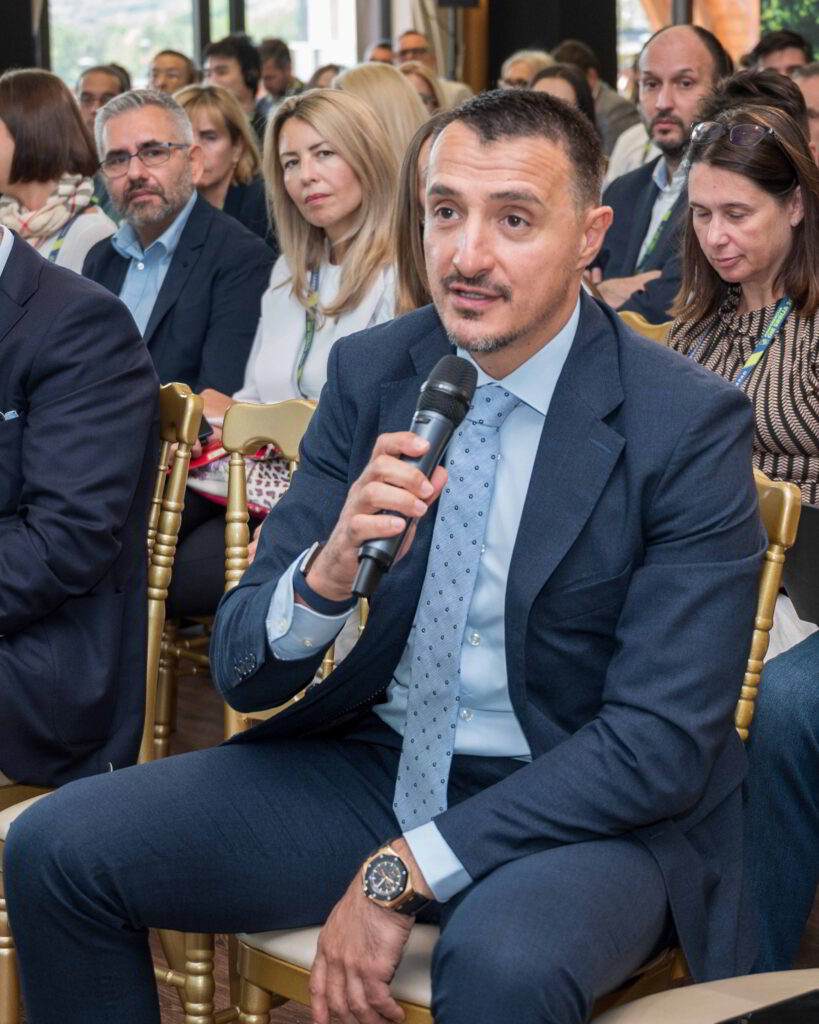
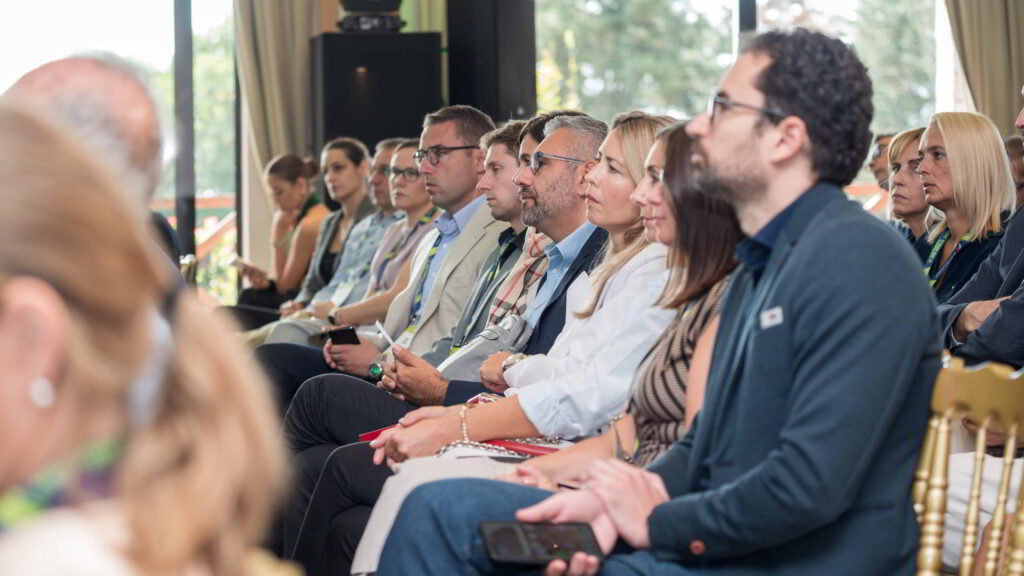
Simplifying the Process for Prosumer Integration
Ivan Smiljković, Executive Board Member at ProCredit Bank Serbia, reminded attendees that Serbia currently generates less energy from wind and solar sources compared to the EU.
“I believe there is room for growth in this segment. We can encourage stakeholders to become more actively involved in renewable energy and energy efficiency projects. CBAM will drive demand for green kilowatt-hours, and it’s up to us and the market to respond. I’m confident we’ll see a sufficient number of sound projects of various sizes that can meet these needs,” Smiljković stated.
He emphasized that in recent years, smaller projects have been unfairly neglected due to the dominant focus on large-scale developments.
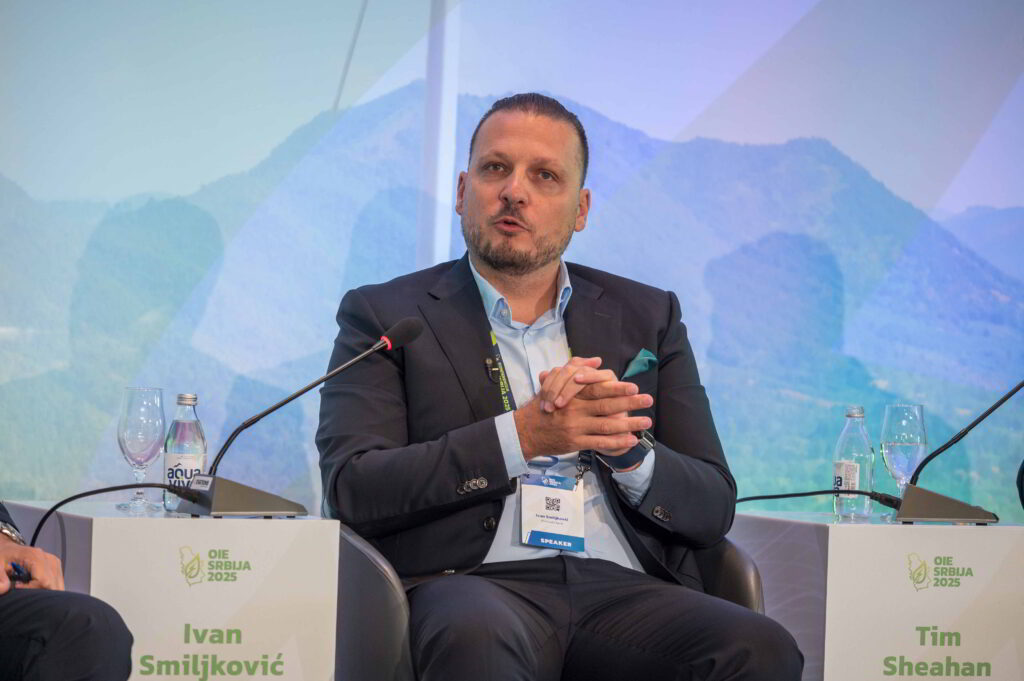
Ivan Smiljković, Executive Board Member at ProCredit Bank Serbia
“We need to recognize that our renewable energy landscape isn’t defined solely by massive capacity projects. Smaller initiatives, worth €5 to €10 million, have been pushed out of the market, yet they play a vital role in popularizing renewables. We need a simpler process for these smaller projects, and an easier permitting model for prosumers, who currently face timelines ranging from several months to several years just to connect to the grid,” Smiljković pointed out.
Banks Should Not Take on Additional Market Risk
Slobodan Latinović, Director of Project Finance at Erste Group Bank AG, noted that renewable energy projects make up a significant portion of the bank’s portfolio.
“We successfully closed eight major projects in the past year, including two in Serbia, the Pupin and Čibuk 2 wind farms. The total volume of financed projects stands at 1.5 GW,” Latinović said.
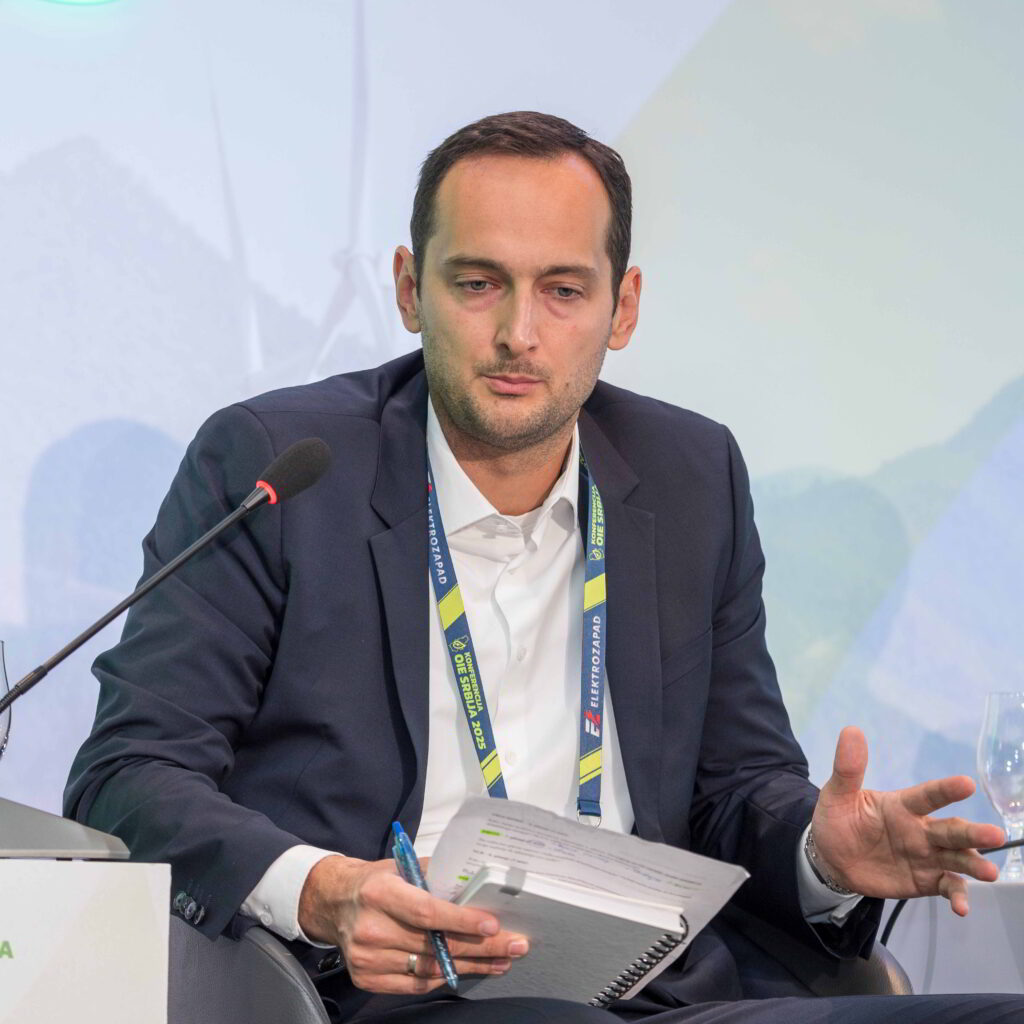
Slobodan Latinović, Director of Project Finance at Erste Group Bank AG
He explained that developing renewable energy projects is a complex process, typically requiring a minimum of three years before a project is ready for auction.
“Liquidity is not an issue at the moment. Banks are interested in financing these projects, but we should not be taking on additional market risk,” Latinović emphasized.
He underscored the importance of regulatory frameworks and shared that the bank has been actively exploring ways to finance battery storage for the past three years. However, no standalone battery storage project has yet been financed in the region.
“We’d also like to see more corporate PPAs. In Europe, 81% to 83% of all PPAs are corporate,” Latinović concluded.
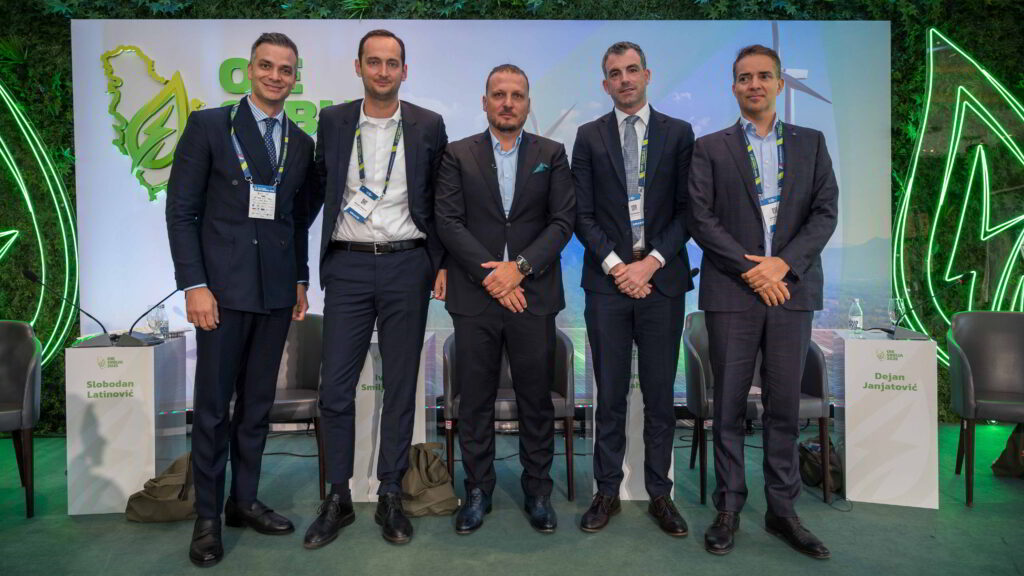
The RES SERBIA 2025 conference, now in its fifth year, brought together decision-makers, company representatives, investors, banks, and members of the academic community. The event was organized by the Association Renewable Energy Sources of Serbia.


